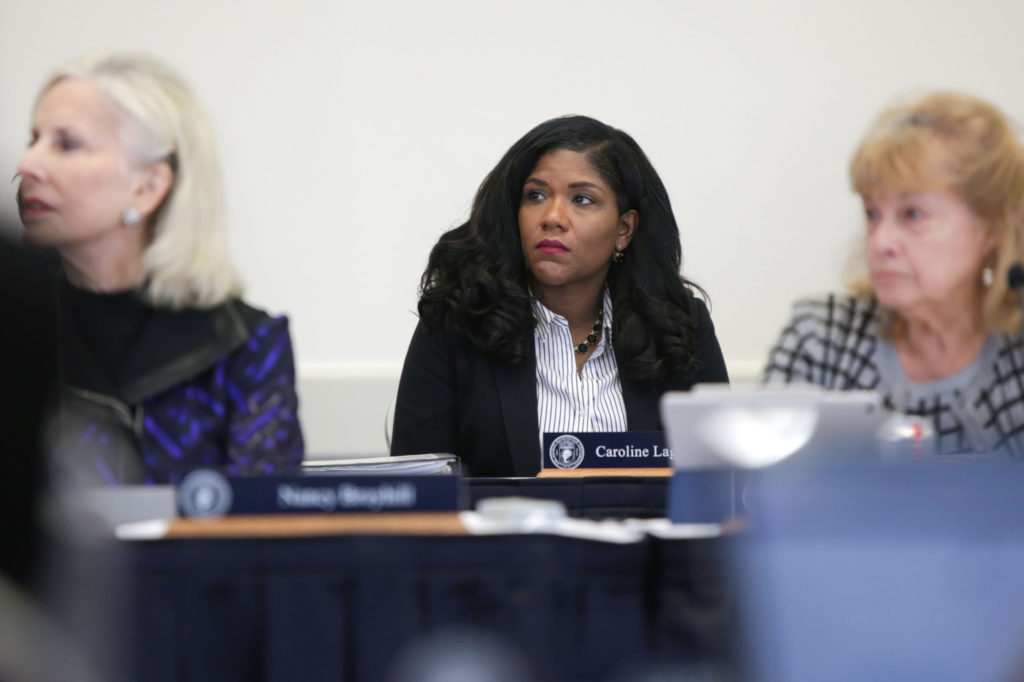Incoming students are now required to complete a diversity training that none of GW’s peer schools offer freshmen.
Officials debuted an online module Thursday that runs through scenarios showing student actors playing out incidents of discrimination or hate in college and asking incoming students how they would handle the situation. Diversity experts said that unlike in-person diversity training held during orientation sessions, the module helps students better understand what situations they may encounter on campus and how to tackle them from the get-go.
“The intention is for students from GW to feel that not only it’s relatable but also that it requires them to think a little bit about what they would do if they were in a certain circumstance,” Jordan West, the diversity and inclusion education director, said in an interview last week.
Everfi, a company that creates educational training modules, partnered with GW to launch the module. Incoming students are already required to participate in a mandatory sexual assault prevention training through Everfi.
The University’s 12 peer institutions do not offer online diversity training for their incoming students, but some of the universities, like Tufts University and the University of Southern California, have used Everfi to create mandatory sexual assault prevention training.
The training, which will be required for the Class of 2022 and every subsequent class before they enter campus in the fall, also includes a tab for students to leaf through definitions of terms like discrimination or ageism. The module was in the works for months after officials responded to a racist Snapchat incident last year with a series of diversity initiatives.
The Class of 2022 was also the first to participate in an in-person diversity training during Colonial Inauguration last summer, which will take place again during a revamped new student orientation in August.
West said students’ backgrounds and experiences before coming to college are not synonymous, and the training presents scenarios with which students may not be familiar.
In one video, a person named Jose is shown interacting with someone named Jeff, who said he was expecting Jose to look more “south of the border.” The video pauses, and students are asked what they would do in the situation: tell Jeff that his comments are racist and that he should leave, discuss Jeff’s comments or tell Jose to share his thoughts.
“This scenario allows us to have not only our students be exposed to a story that’s familiar or different but decide how they would interact as a friend or a peer,” West said.
Students are also asked reflection questions about the ways their friend groups are diverse and how they could make their community spaces more inclusive. Later in the module, students are asked questions about the way they would respond to someone who joked, “women and math – it’s not your fault – it’s just not your thing.”
Caroline Laguerre-Brown, the vice provost for diversity, equity and community engagement, said she is trying to move past “surface concepts” on diversity and inclusion and offer students a tool where they will not passively watch incidents of discrimination.
She said the online module could help students understand the University’s values before they step foot on campus.
“We hadn’t had a mandatory training campaign in this area before, and we thought beginning with incoming students would probably be a good way to test the waters, gauge how students react to this training,” she said.
Erin McClintock, the director of impact and education at Everfi, said the training is not a substitute for other diversity and inclusion efforts around campus. The module will complement already-implemented programs on campus because “one course is not going to completely change the paradigm at an institution,” she said
She said the company works with about 1,500 other schools to create trainings on a range of topics including diversity and sexual assault prevention, but she declined to name the business’ partners.
“It’s really about having a course in relation with other ongoing efforts,” she said. “Depending on what a student is learning in their first-year experience, for instance, or their orientation, this is meant to bolster that knowledge.”
Ray Plaza, the director of diversity and inclusion at Santa Clara University, said incoming students typically undergo diversity training during orientation, but officials often do not offer a mandatory online course. Plaza said GW “elevates the importance” of diversity initiatives by mandating the course for all of its incoming students.
“As someone goes through the video modules and they have to click through, they’re at least paying attention,” he said. “It’s the message that it sends that this is an important value for our community and this is one way for you to embrace this.”
Monroe France, the associate vice president for global and student engagement and inclusive leadership at New York University, said NYU does not mandate diversity training for its students. He said GW may be ahead of its peer schools in implementing the module because officials were responding to the racist Snapchat incident last year.
France added that Everfi likely made a “huge assessment” of the University’s needs, and other institutions could follow suit in using a similar module if officials found that students learned from the training.
“If it’s created in a way that’s inclusive and helps to create learning and people feel like they’re taking something away from it, then I can’t imagine why other institutions would not want to take advantage of institutionalizing the platform,” he said.




